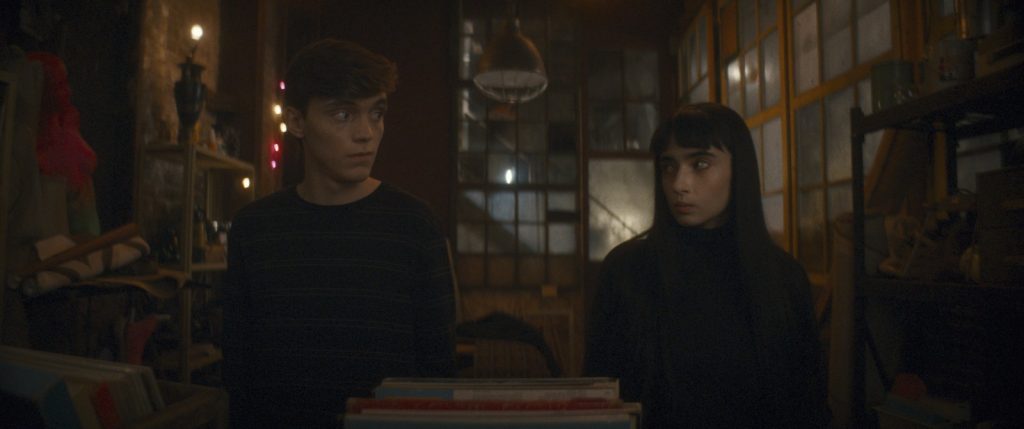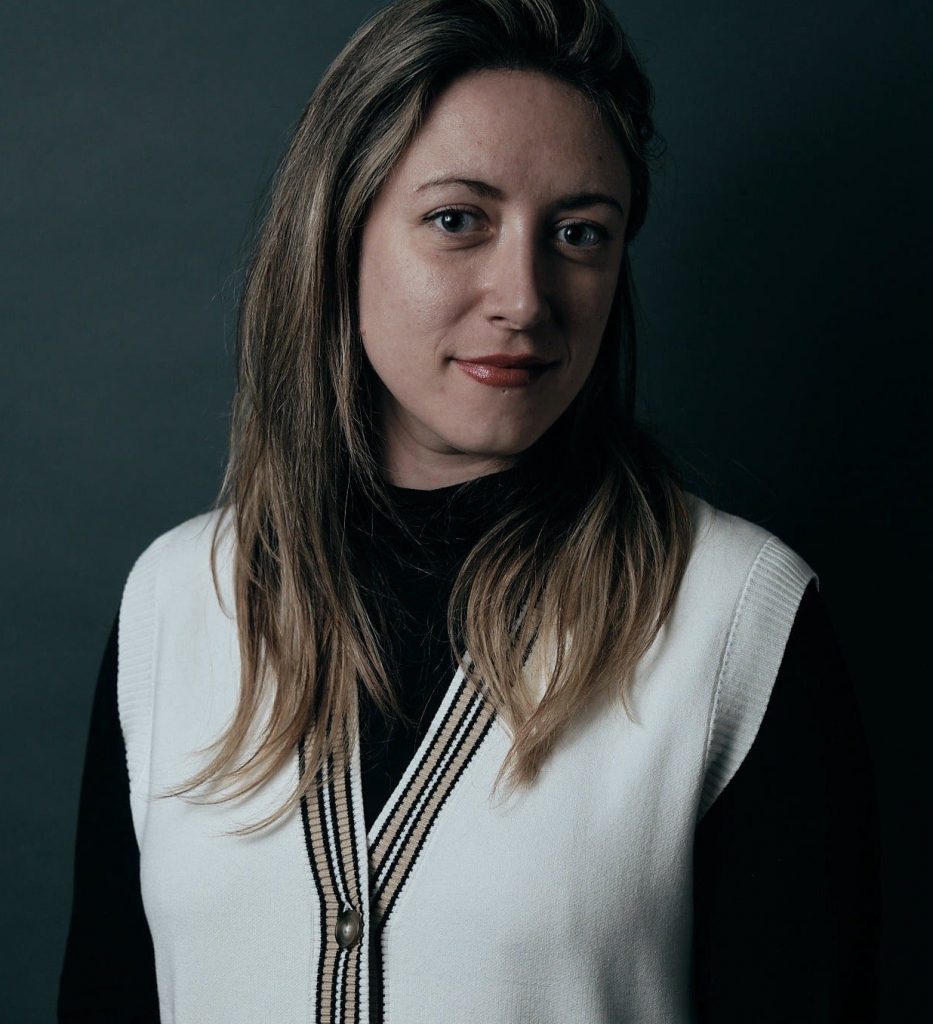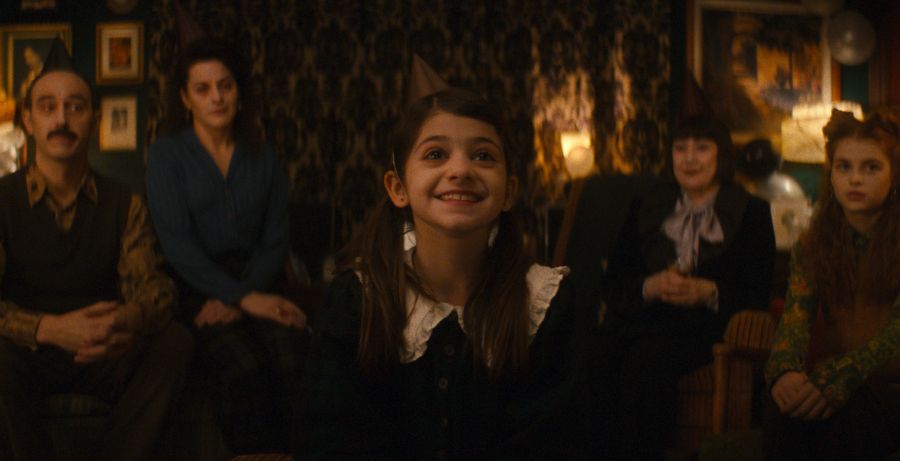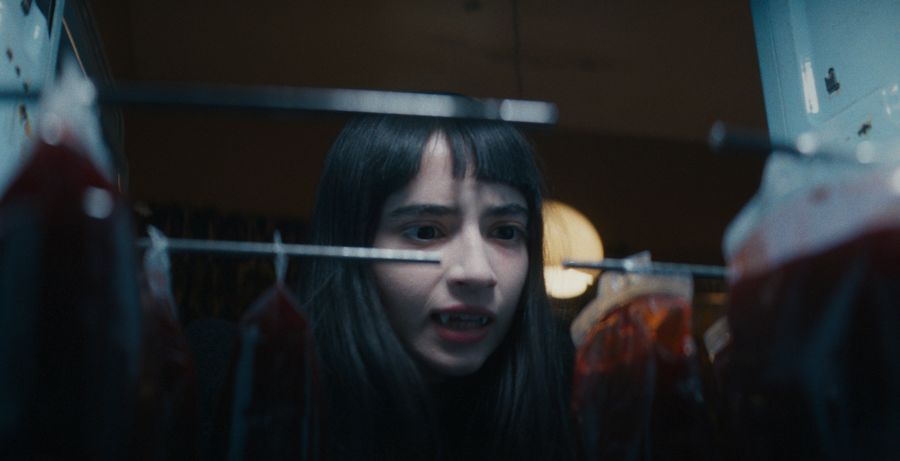Reviews include Superman, Apocalypse in the Tropics, and To a Land Unknown.
Ariane Louis-Seize on Humanist Vampire and Taking a Bite Out of Taboos
February 26, 2024

By Rachel Ho
Since premiering at the 2023 Venice International Film Festival’s Giornate degli Autori, Ariane Louis-Seize’s Humanist Vampire Seeking Consenting Suicidal Person (Vampire humaniste cherche suicidaire consentant) has won awards at numerous film festivals, including Best Canadian Film at both the Windsor and Vancouver International Film Festivals. Louis-Seize herself has also received much acclaim, winning Best Director at Venice and the Jean-Marc Vallée DGC Discovery Award from the Directors Guild of Canada last year.
The story follows Sasha (played by Sara Montpetit), a teenage vampire who is pressured by her parents to kill people for their blood against her own morality. But when she crosses paths with suicidal teenager Paul (Félix-Antoine Bénard), her need to feed assumes an altruistic element. The unique take on the horror genre has connected with audiences in a way that doesn’t come around very often. The dark humour and thoughtful navigation of intricate themes have welcomed people young and old to discuss the nuances of growing up, particularly in today’s complicated landscape.
The film is now one of three nominees for the Rogers Best Canadian Film award, alongside Matt Johnson’s BlackBerry and Sophie Dupuis’ Solo. The award carries a cash prize of $50,000, courtesy of Rogers, with the runners-up each receiving $5,000. Also the recipient of this year’s Stella Artois Jay Scott Prize for an emerging artist, Louis-Seize has enjoyed great success early on in her career, which includes a number of acclaimed shorts prior to her first feature. I caught up with the filmmaker over Zoom to talk about the film’s accomplishments, the intense period of being a teenager, and what she hoped audiences would take away from Humanist Vampire.
Rachel Ho: The response to your film has been really extraordinary: audiences have really taken to it and it’s also received a lot of critical praise. Given that this is your feature debut, how have you been taking in the response?
Ariane Louis-Seize: It is kind of overwhelming, but in a good way. When I was shooting the film and doing the post-production, I knew that I really liked my characters and I was proud of what I achieved, but you never know how the world will respond to it. The fact that it seems to reach people all around the world and people can connect to my characters, it’s kind of surreal. I’m so happy. I couldn’t ask for a better debut for my first feature film, for sure.

I think part of the universality of your movie comes from the coming-of-age genre, which tends to have that effect, but you put a spin on things with the vampire angle. What drew you to the vampiric side?
I always liked vampire figures. I remember The Hunger by Tony Scott with David Bowie, Susan Sarandon, and Catherine Deneuve really impressed me as a child — not child, I wasn’t too young, but maybe younger than what you’re supposed to be for that movie. But there’s something about vampires. They are attractive, but also repulsive and dangerous. I think mixing this world with teenagers is interesting because, as teenagers, everything is so intense. We are looking for our own boundaries and the boundaries of others. I wanted to do something playful and felt that bringing those two tones into a universe together wasn’t something that I had seen before.
You mention vampires are attractive figures, and typically vampires in movies are shown to be very sexy.
Yes, that’s true, [but] the thing is that I didn’t want to go there. I wanted to play with the awkwardness of the teenage years — how you feel when you’re not fitting in a mould. It’s an anti-sexy vampire film. In my head, [Paul and Sasha] are meant for each other, but it’s platonic. It’s still romantic, but there’s no sexual tension. It’s more like a connection of the mind.
You had a very successful short a few years ago, Les petites vagues (Little Waves), which deals with sexual awakenings as well. What is it about the sexual awakening theme that connects with you?
I think it’s the fact that sexual awakenings are a lots of things and usually we connect it to the sexual act of making love for the first time. The sexual awakening that I like to play with is more of an intimate thing. I think no one feels really positive the first time they have sex, or maybe they did, but nobody orgasms the first time — it’s never a fairy tale in the moment. When you discover, by yourself, that your body can create this powerful sensation by itself, you don’t need anybody for it, it’s something really frightening but also powerful.
When I was young, nobody talked about masturbation, and sex was an act of performance to be hot for somebody else, like you’re doing it for somebody else and not for yourself. So I think that’s what I tried to reconnect myself to–the teenage Ariane from the past. And also to open up a dialogue around it for younger audiences and older audiences because we are not used to talking about this. We all feel so alone [but] we are all experiencing similar things with some degrees of difference. I think that’s why I talk about these things, but it’s never a conscious thing.

I think that’s particularly true for young women, and like you said, we’re all going through something similar but we never talk about it until we’re in our 30s and then realize we weren’t just weird 12-year-olds.
And that’s late to realize that and to try to reprogram yourself to [understand that] sex should be fun, and it should be for yourself as well. I wish younger people can feel that before their 30s!
Have you noticed that the younger generation is taking to your film in a different way to our generation and older?
Yeah, for sure. I think the younger generation is so inspiring. I really love to work with young actors and it’s nice to show them in another light and not just the same old clichés. I think that’s why a coming-of-age [film] speaks to them when it [doesn’t have] those clichés. They can connect with the characters.
It’s nice to reinterpret the classics with a modern touch. I also think that we all have an inner-teenagers not too far away from ourselves that we, as adults, remember. Teenagers are intense in their emotions. It’s an intense period of life.

Part of that modern touch that you apply onto the film is how much more open people are to discussing things like suicide and assisted suicide. You never judge your characters for the decisions they make, instead you explore why they’re thinking the way they are.
Yes, mental health was taboo and we didn’t discuss it really when I was young. And now…the world is not doing well, but something encouraging is how we can talk about mental health without that taboo. It’s still sensitive and there are still people who don’t want to talk about it, but I think not wanting to talk about something hurts, too. That’s why I wanted to touch on those subjects without making a big statement, because it’s complex.
Doing this film for me is a way to think about those important topics myself, so it’s a dialogue between me and the audience. I think doing it as a comedy makes the audience comfortable and puts them in a good headspace. I really wanted to do something for people to walk out of the theatre with a smile afterwards, but still wanting to talk about important things. The fact that adults go see the film with their teenagers — lots of people told me that it brings those conversation home afterwards.
Humanist Vampire Seeking Consenting Suicidal Person is available on home video.
The winner for Best Best Canadian Film will be revealed on March 4.



